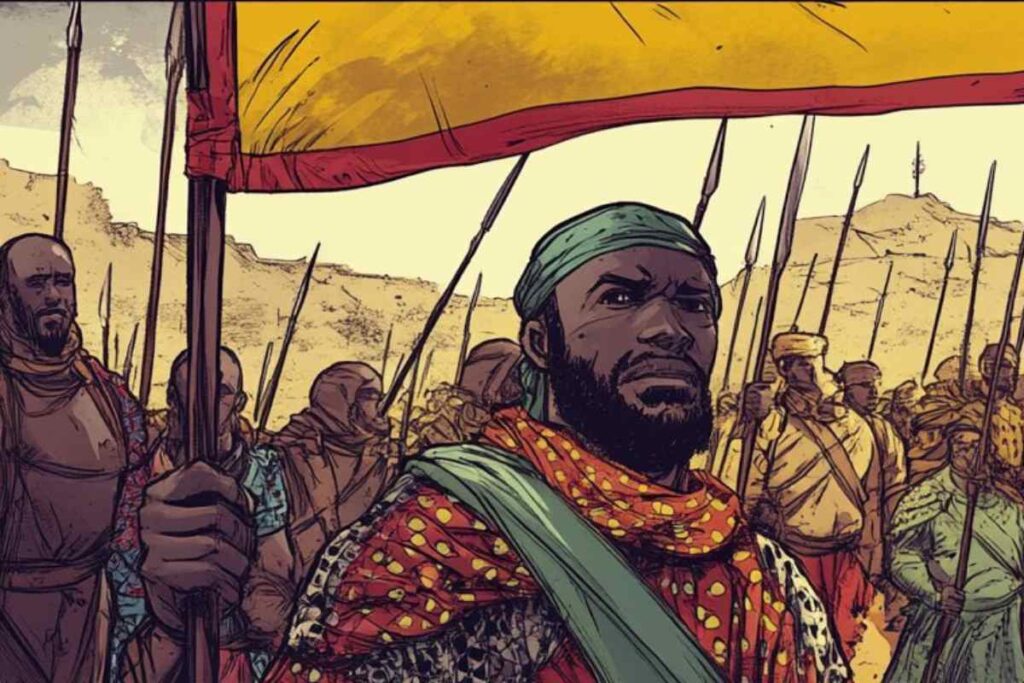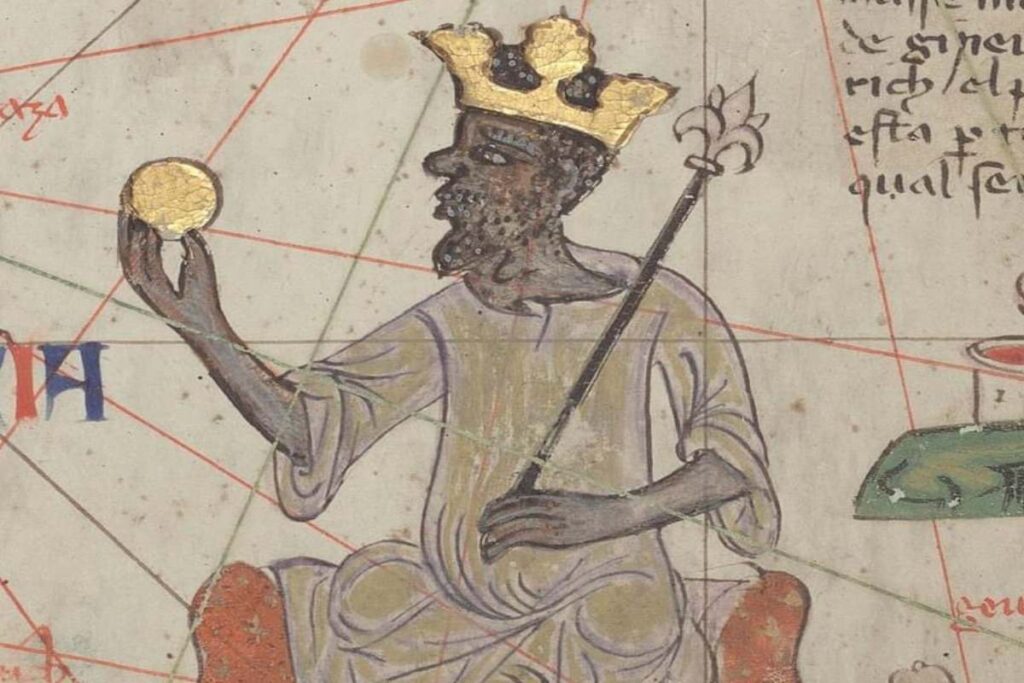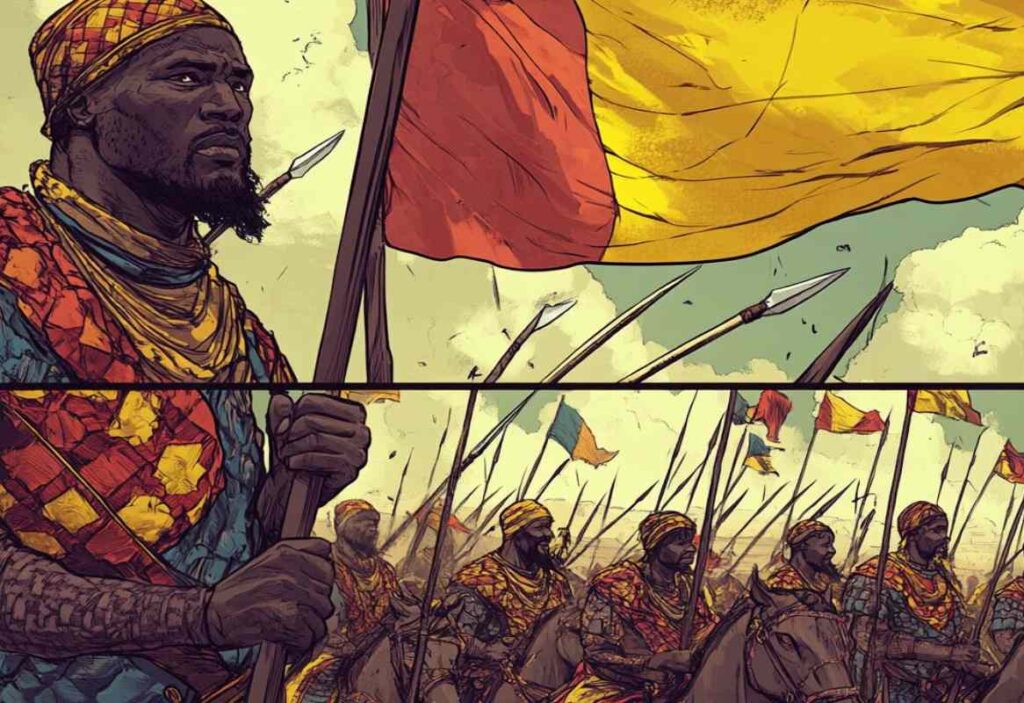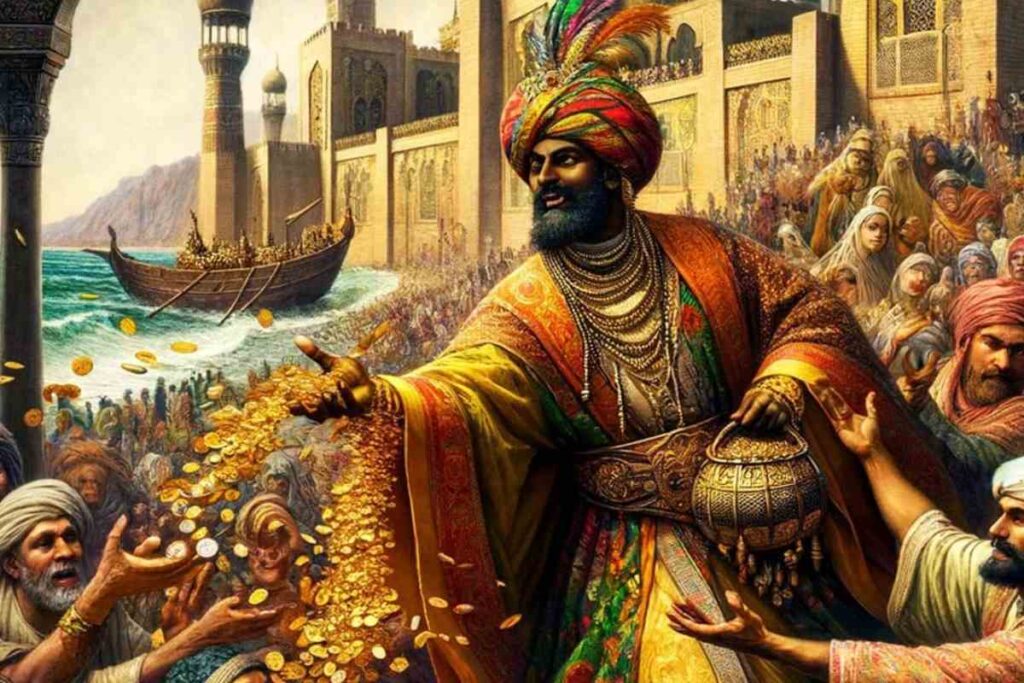Elon Musk isn’t the richest man to have walked this earth. Many history books credit that feat to Mansa Musa, the ruler of the legendary Mali Empire who lived less than a thousand years ago. According to historians, Mansa Musa’s wealth would translate to at least $400 billion in the present day.
Mansa Musa was so rich that he practically left a trail of gold everywhere he went. Records show that during a stopover in Egypt, while going to Mecca for pilgrimage, the Malian Emperor gave out so much gold that its local value dropped and didn’t pick up till 12 years later.
His affluence was so vast that hundreds of years after his death, many explorers have carried out expeditions to Mali with the hope of uncovering his hidden wealth. But he owes his fortune to the greatness of the Mali Empire, which was one of the most prosperous and influential empires in the world.
Controlling over 12,000 kilometers of land, the empire became a political world power and an engine room of global trade. It was also home to Timbuktu City, one of the world’s greatest learning and intellectual hubs.
Currently, Timbuktu has remained a UNESCO World Heritage Site for the same reason. In the days of her brightest glory, the city hosted many of the world’s leading philosophers. These geniuses converged to learn and share knowledge.

To date, historians still speak of the “lost” libraries of Timbuktu. These were a collection of both public and private libraries that existed at the time and were reported to have contained 700,000 manuscripts. These manuscripts contained valuable and groundbreaking knowledge on Art, medicine, mathematics, philosophy, astronomy, and other fields of learning. The Mali Empire was indeed a wonder.
This enviable status continued for over 400 years, after which the empire crashed just as unexpectedly as it emerged. The rise and fall of the Mali Empire has remained a curious and fascinating case to date.
The Birth of an Empire
It all began in the 1230s. Fueled by sheer ambition and willpower, a man called Sundiata Keita attempted a feat that would change the course of history forever. At the time, Keita was the prince of the Kingdom of Kangaba. Kangaba was a relatively small territory and one of the many kingdoms under the Ghana Empire (which isn’t related to present-day Ghana).
Keita decided to attempt something only someone like him could have dared. He challenged the neighboring and relatively larger Sosso kingdom to battle. In the end, Keita attained a shocking victory over the kingdom and its ruler, Sumanguru Kante. But he was still not satisfied. He began to dream even bigger.
At the time, the Ghana Empire was in decline. It was beset by a myriad of headaches, ranging from rebellion-inspired civil wars to poor harvests. One of the rebel territories that was close to seizing power from the center was Sosso, led by Sumanguru Kante.

Keita saw an opportunity and took it. He conquered Sosso and continued from where it stopped. Keita waged war against other cities and rapidly expanded his kingdom. True to his name, which is translated as “lion prince,” Keita enjoyed victory upon victory.
He took over massive expanses of land that covered present-day Mali, Mauritania, Senegal, Guinea, and the Gambia. This was the start of what is now known as the Mali Empire.
Keita named the territory “Mali,” which means “The place where the king lives.” He also decreed that subsequent leaders of the empire would emerge from the Keita clan. But they wouldn’t necessarily be his eldest sons.
The king ran an elaborate and decentralized system of governance, consisting of elders and chiefs spread across the empire, plus advisers. However, the king, or Mansa, had the final verdict in judicial matters. As such, the fate of the empire rested on the leadership quality of its leader. Fortunately, Keita excelled in that department.
The Greatness of the Mali Empire
Unlike other empires, such as the Roman Empire, the Mali Empire embraced a significant level of democracy. The empire was divided into chiefdoms and city-states, each with its own leader. Decisions were made by the Mansa but not without the input of the Gbara—a council of elders and chiefs.
In addition, the Mansas allowed the various cities a great degree of independence. Chiefs had a free hand in making decisions and implementing policies in their domains. Yet, the whole empire enjoyed the protection of the army, which submitted to the Mansas.
The Mali Empire was also a commercial hub. The kingdom enjoyed massive economic advantages by virtue of its positioning. It was the leading trading center in the trans-Sahara trading market, as major trading routes ran through the kingdom.
The Mali Empire was also heavy on agriculture. It produced grains, nuts, kola, cotton, and sesame in massive quantities. They traded these products in a free and open market.

Despite the region being a major agricultural player, it was most widely known for something else—its gold. The Mali Empire was a leading producer of the precious metal. In fact, the empire was responsible for almost half of the world’s gold at the time.
The king also monopolized gold. In line with a decree, the Mansa owned all the gold nuggets in the land. The gold traders could only deal in gold dust. This was the beginning of immense wealth for anyone who sat on the throne. But it was during the reign of a particular king, Mansa Musa, that the fullest glory of the Mali Empire emerged.
The Legend of Mansa Musa
The story of the Mali Empire isn’t complete without the legendary Mansa Musa or Musa I of Mali. In 1312, Mansa Musa became the leader of the Mali Empire and ushered the kingdom into what is now known as the “golden age.” According to multiple reliable reports, he was just in his twenties when he became the leader of the empire.
However, whatever he lacked in terms of age, he more than made up for in vision. Mansa Musa saw great potential in the empire and immediately went to work. He built numerous libraries, schools, and universities. Under his leadership, cities such as Timbuktu and Gao earned their titles as knowledge hubs.
Trade blossomed even more. The Mali Empire consolidated its position as the leading dealer of salt and gold. The empire also expanded. Mansa Musa directed many more successful wars and, as a result, doubled the empire’s land mass. Soon, he became the richest man of his time and also the wealthiest man to have ever lived.
As a devout Muslim, he carried out the Islamic pilgrimage to Mecca in Saudi Arabia. This journey offered the rest of the world one of its best glimpses into his affluence. Mansa Musa carried a large entourage on the 1324-1326 journey, including many servants and slaves.

As he journeyed, he doled out huge amounts of gold to anyone he deemed worthy. Legend has it that he traveled with dozens of camels, each carrying about 136 kg of gold. Sadly, all the glory of the Mali Empire began to fade after Mansa Musa’s death in 1337.
An Empire Declines
Not very long after his demise, the kingdom fell short of the visionary leadership that was responsible for its rise. As a result, other trade centers began to emerge to fill the void, and Mali was no longer the trade giant it used to be.
Up north, the Songhai empire was watching closely, waiting for the right moment to strike. When they did, the Mali Empire couldn’t withstand their firepower. Mali was also at the receiving end of assaults from the Portuguese and the Tuareg nomads.
Soon enough, resentment began to grow from within the Mali Empire. Rebellion was also mounting. Mansa Musa’s successors soon became jittery. They tried to whip the people back to submission using violence. But things only got worse. The people began to develop loyalty for the Songhai, who were also called Sonnis.
At the end of the 15th century, the Mali Empire finally caved into the Songhai onslaught. Around 1468, the Songhai Empire’s King Sunni Ali gained control of the territory. The great and super-promising Mali Empire was finally lying face-down on the ground.
The rise and fall of the Mali Empire will remain a great lesson and a testament to the power of leadership. The empire’s glory will continue to fascinate generations unborn, and Mansa Musa’s influence will remain a point of reference until his record wealth is broken and even for many years after.

